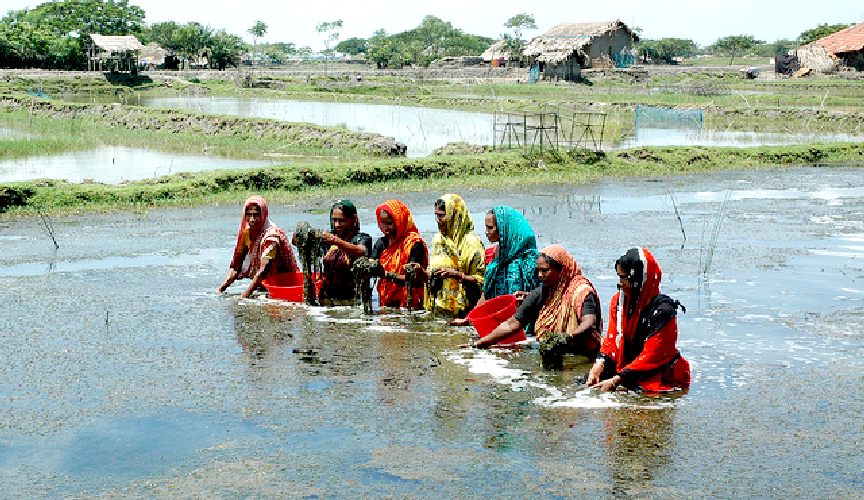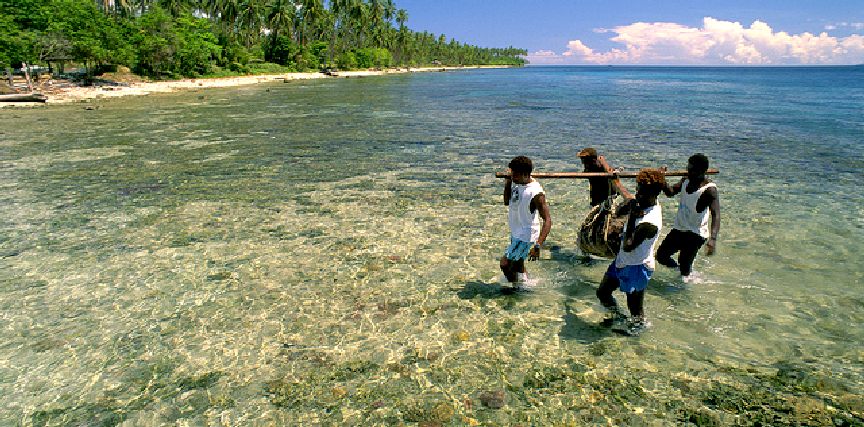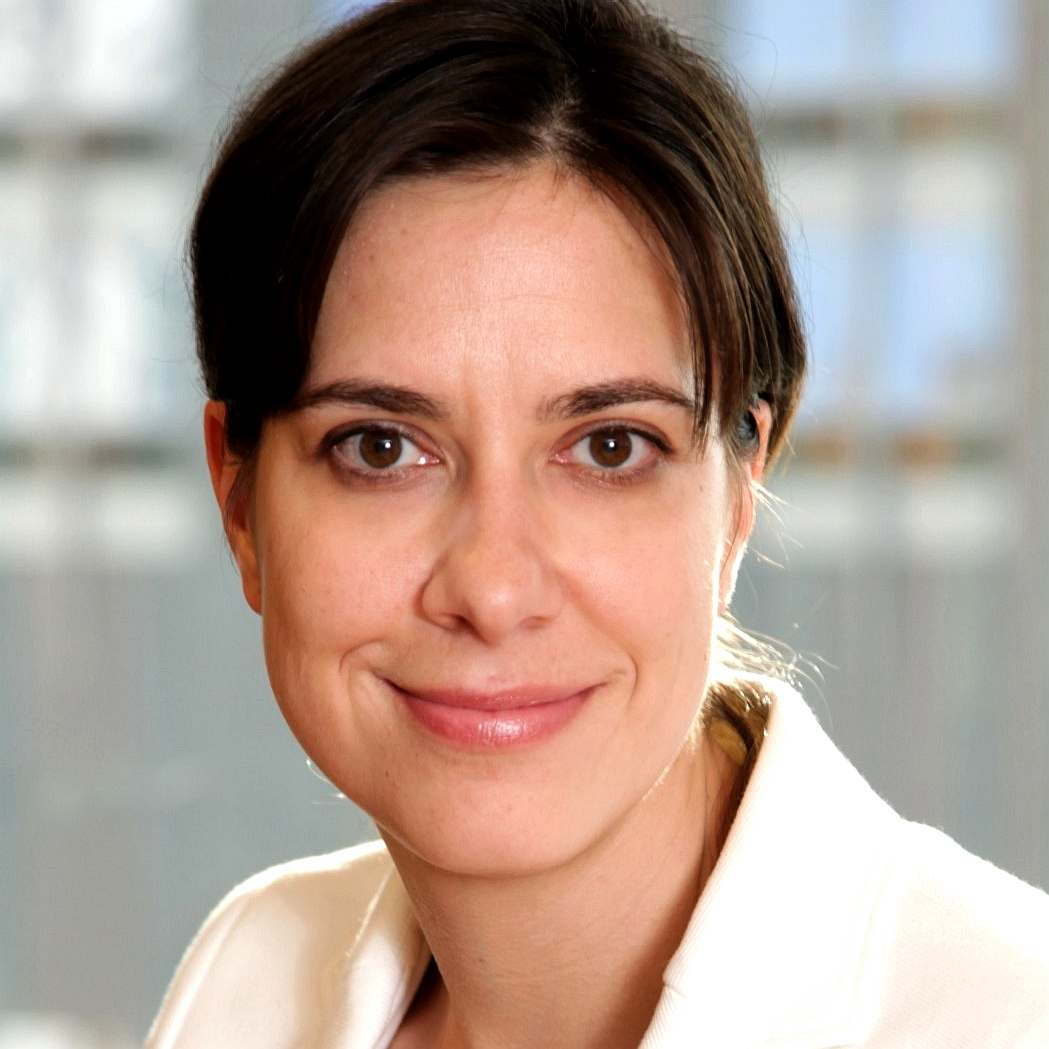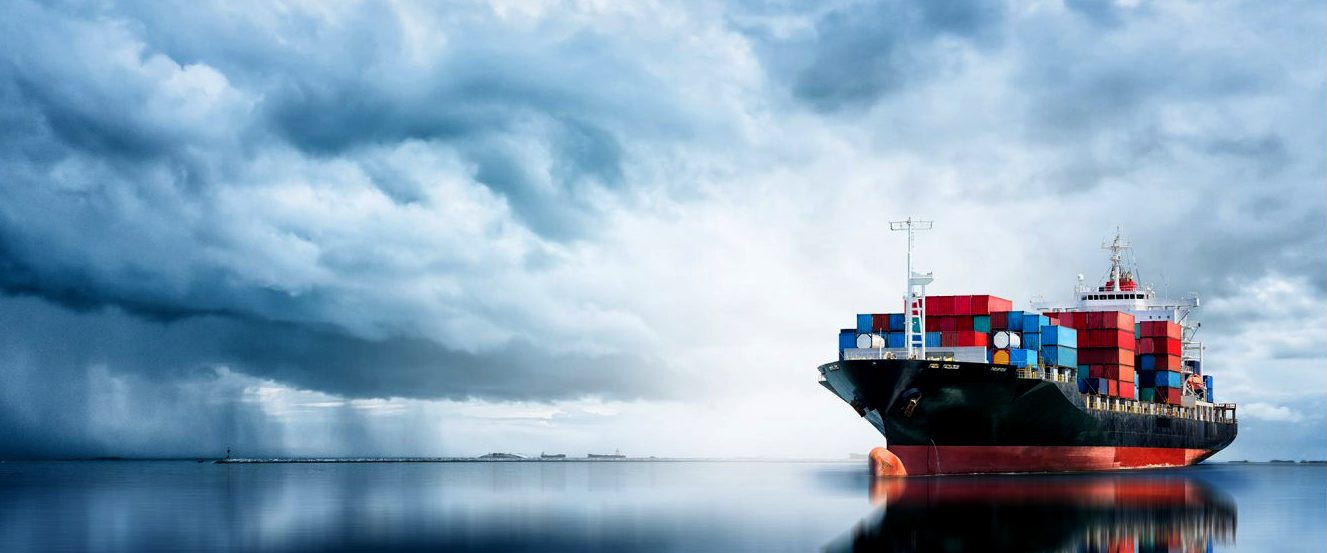|
ROCKEFELLER
FOUNDATION
FOUNDATION -
HOME - A-Z INDEX

SOLOMON
ISLANDS
- Women stock tridacna gigas from the sea by moving upstream
At the
Global Ocean Action Summit in late April, while speaking on a panel I quipped that the Summit’s subtitle, “Action for Food Security and Blue Growth,” should have been Action for Food Security
and Inclusive Blue Growth, because so many different equity issues underpin the success of the blue growth agenda.
The shift to a blue growth economy, acknowledges that the ecosystem services provided by the ocean are important global priorities and have both intrinsic and monetary values and underpin well-being and growth. These services include food security and nutrition, livelihoods and jobs, carbon cycle regulation, and the broader cultural, religious, and recreational uses of the ocean. Paramount, too, though, are many issues of access, rights, compensation, voice in decision making and redress that cannot be ignored if our goal—as it ought to be—is fair and lasting outcomes.
What is currently missing from our conversations on Blue Growth?
When it comes to marine resources generally, and the fisheries sector specifically, a first principle of inclusive blue growth needs to include asking the question, growth for whom? The answer needs to include the men and women dependent on fisheries for both livelihoods and food security, and keeping them top of mind alongside revaluing critical ecosystem services. It’s not a zero sum game, and we will all lose if we fail to do this.

WHEN IT COMES TO MARINE RESOURCES AND FISHERIES SPECIFICALLY, WE NEED TO ASK THE QUESTION, GROWTH FOR WHOM?
This means guaranteeing equitable access to marine resources even as we put in place measures to better manage that access to reduce unsustainable use. It means providing exclusive access for small-scale fishers who depend on marine resources for their livelihoods, and providing fair compensation when access needs to be restricted to enable ecosystem recovery. We need fair decision-making institutions that give all stakeholders dependent on the marine environment a voice in the stewardship of the resource, and a just and trusted mechanism for resolving conflicts that will arise. We can’t have a situation where 80 percent of people who truly depend on the bounty of the seas are left out of any decisions on their future.
Second, it means that new opportunities and benefits from restored fisheries, such as expanded tourism and improved infrastructure and market access, reach all those with a vested interest in fisheries: Not just the more educated and the more powerful, but also marginalized populations, including those subject to discrimination, as well as poor communities that rely on
fishing as an essential source of income and food. Extending opportunities to these groups may require targeted outreach, perhaps including quotas, along with other focused assistance across the entire fishing value chain.
When planning for inclusive blue
growth, it’s important to recognize several gender equity issues. While it’s almost exclusively men out on the water, women are key players in the fishing value chain particularly when it comes to processing. Yet they are often marginalized from decision making and resource management processes. Women represent 47% of the fisheries workforce, but are notably absent from conversations about the
Blue Economy. Fisheries management decisions have cascading impacts throughout the value chain, and to avoid unintended consequences for women and their livelihoods, it’s critical that gender dynamics be taken into account when developing new opportunities and sustainability approaches. Women’s access to resources, dependence on fisheries, role in management decisions and leadership need to be recognized and leveraged to create change.
We also need to consider blue growth from a food and nutritional security perspective. For instance, does increasing trade of fish affect the local affordability of fish? Do new policies cause
fish consumption to decrease locally and consumption of less healthy foods to increase? Within a household, who has access to
fish? Are pregnant women and children, for whom fish can be a critical source of micronutrients and protein, eating fish? These issues are often deemed to be “too micro” to monitor and address, but have significant implications for food insecure populations.
We also need to take a look at who benefits from the bounty of the ocean at a more macro scale. Unfair foreign access agreements provide rights to rich fishing resources for the equivalent of “crumbs from the high table” according to one Pacific Island delegate to the Global Ocean Action Summit. These agreements often sell access for a fraction of their economic value, and result in destructive fishing practices that degrade the environment. Furthermore, they can affect small-scale fish catches, generate fees that are infrequently reinvested in local fisheries management, and have limited impact on broader macroeconomic development.
Finally, there is an intergenerational equity dimension we must consider as well. Will future generations benefit from a productive and diverse ocean? Will
overfishing, climate
change, ocean
acidification, marine pollution and coastal habitat destruction leave future generations with a wasteland? Will we inflict this injustice on future generations by failing to take preventative action while we still can?
By Cristina Rumbaitis Del Rio

ABOUT
THE AUTHOR - Cristina Rumbaitis del Rio joined The Rockefeller Foundation in April 2007. As a Senior Associate Director, Dr. Rumbaitis del Rio helps develop the Foundation’s initiatives regarding building resilience for poor and vulnerable people who will be affected by climate change. She is currently leading the Rockefeller Foundation’s exploratory work on oceans and fisheries conservation. Prior to joining the Foundation, Dr. Rumbaitis del Rio was a post-doctoral fellow conducting research on sustainable development at Columbia University’s Earth Institute. She also did policy research for the United Nations Environmental Program, the U.S. Department of State, and other institutions. She was a recipient of the 1996 National Harry S. Truman Scholarship for Public Service and a Mass Media Fellow of the American Association for the Advancement Science. Rumbaitis del Rio received a Bachelor of Arts degree from Columbia University. She also has a Doctoral degree in Ecology from the University of Colorado.
YOUTUBE
ROCKEFELLER
CONTACTS & REFERENCE
The Rockefeller Foundation
420 Fifth Avenue
New York, NY 10018
Phone: (212) 869-8500
Fax: (212) 764-3468
LINKS
& REFERENCE
http://blog.worldfishcenter.org/
http://blog.worldfishcenter.org/2014/06/inclusive-blue-growth/
http://www.globaloceansactionsummit.com/
https://www.rockefellerfoundation.org/blog/inclusive-blue-growth/
http://ec.europa.eu/dgs/environment/index_en.htm

This
website is provided on a free basis as a public information
service. Copyright © Cleaner
Oceans Foundation Ltd (COFL) (Company No: 4674774)
2017. Solar
Studios, BN271RF, United Kingdom.
COFL
is a charity without share capital.
|



